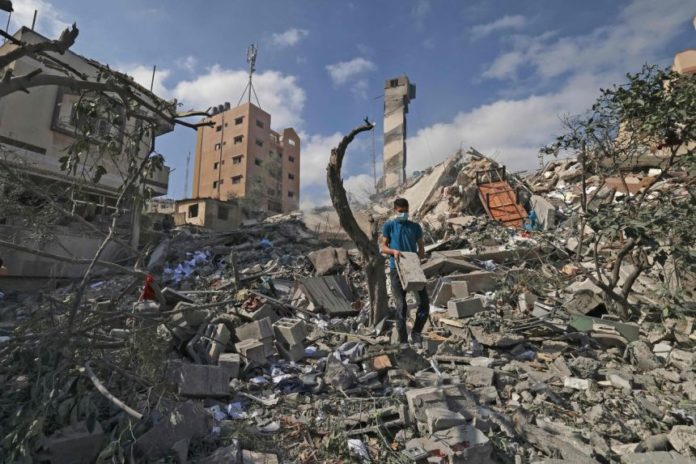
GENEVA, May 19 (NNN-AGENCIES) — The United Nations welcomed an Israeli decision to open the Kerem Shalom crossing to allow aid into Gaza, and urged the opening of a second location to let in humanitarian workers.
Humanitarian aid is urgently needed in the Gaza Strip after over a week of air strikes that have killed more than 200 Palestinians there.
“We very much welcome the Israeli authorities’ opening of Kerem Shalom crossing for essential humanitarian supplies,” Jens Laerke, a spokesman for the UN humanitarian agency OCHA, told reporters in Geneva.
A spokesman for Israel’s Coordinator of Government Activities in the Territories (COGAT) told AFP that the Kerem Shalom crossing was still closed, but confirmed the decision had been reached to open it.
Laerke meanwhile insisted it was also vital that a separate crossing, Erez, be opened “for the entry and exit of critical humanitarian staff”.
In the days to come, he said, “humanitarian access into and out of Gaza for staff and goods must be sustained and appropriate measures taken to continue movements within Gaza.”
Israel launched its air campaign on the Gaza Strip on May 10 after the enclave’s rulers, the Islamist group Hamas, fired rockets into Israel in response to unrest in Israeli-annexed east Jerusalem.
In total, Israeli air strikes have killed 212 Palestinians, including 61 children, in Gaza — whilst rockets fired by Palestinian armed groups have killed 10 people in Israel, including a child, according to officials on both sides.
The conflict risks precipitating a humanitarian disaster in Gaza.
More than 130 residential and commercial buildings in the enclave had been destroyed as of Monday, Laerke said, citing Gaza official data.
An additional 316 housing units had been so damaged they had been rendered uninhabitable, he said.
This has caused mass-displacement, with nearly 47,000 people seeking refuge in 58 schools run by the UN agency for Palestinian refugees, UNRWA, as of Tuesday morning.
The need for food aid is meanwhile on the rise.
And six hospitals and nine primary health care centres had been damaged, with one centre suffering severe damage and a hospital ceasing to function due to lack of fuel, Laerke said.
Healthcare and other vital services have also been severely disrupted by frequent power cuts, with damaged networks leaving people with only between six and eight hours of electricity on average per day.
World Health Organization chief Tedros Adhanom Ghebreyesus decried that “dozens of incidents involving health workers and health facilities have occurred” in the recent escalation of the conflict in Gaza.
“Protection of health workers and health facilities is an imperative in all circumstances,” he insisted, calling “for leaders on all sides to ensure respect for these vital humanitarian laws.”
WHO spokeswoman Margaret Harris told reporters that 91 attacks against healthcare facilities and personnel had been recorded in the Palestinian territories in the past month, mainly in Gaza.
At the same time, she warned, there were basically no stocks left of nearly half of essential drugs and a third of important medical supplies in the enclave.
In addition to the dire healthcare situation, Laerke warned of severe disruptions to water and sanitation services.
The main solid waste disposal site in Gaza has been temporarily closed after it was bombed on May 15, with solid waste now accumulating in a sub-station in the heart of Gaza city, he said.
The North Gaza Seawater Desalination Plant is also not functioning, he said, pointing out that “this undermines access to drinking water for about 250,000 people.”
“In total, an estimated 800,000 people are lacking regular access to safe water in Gaza.” — NNN-AGENCIES






